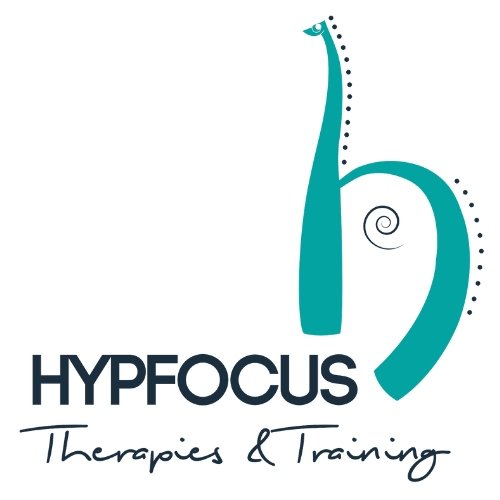Why Traditional Relaxation Methods May Not Work
You’ve tried deep breathing, quiet meditation, long walks, maybe even dimming the lights and playing calming music before bed. And yet, the tension in your body doesn’t ease up, your mind keeps spinning, and relaxation feels just out of reach.
For many people, traditional methods that are meant to relax and settle the nervous system simply don’t do what they’re supposed to. That doesn’t mean there’s something wrong with you. It just means your brain and body may need a different kind of support to access calm in a meaningful way. With spring approaching in Melbourne, many people look to renew habits and commit to better mental well-being. It's a good time to reassess what’s working and what’s not.
If relaxing feels like hard work or if your usual go-to routines leave you feeling more frustrated than calm, there could be something deeper going on—something that needs more than just breathing through it. This is where hypnotherapy can bring a different approach, working with the subconscious mind rather than pushing against it.
Understanding Traditional Relaxation Methods
It’s completely normal to be drawn to things like yoga, meditation or mindfulness when feeling stressed. These are the methods most people are told will help them relax. And sometimes they really do. Taking a few minutes to close your eyes and slow down your breathing can give your nervous system a bit of a reset. Moving your body with gentle stretches or tuning into quiet music can also make a difference in the moment.
The core idea behind these techniques is to move into a calmer mental space by doing something intentional and structured. They often encourage:
1. Breathing patterns that activate the parasympathetic nervous system
2. Quiet focus to reduce mental noise
3. Mind-body awareness to relieve physical tension
4. Present-moment attention to shift out of anxiety loops
For many people, this is enough to manage a stressful day or get through a rough patch. It’s why these methods are so widely recommended. They seem safe, natural, and easy to fit into daily life. But if you’ve ever sat down to meditate and felt more anxious afterwards, or if yoga leaves you restless instead of calm, then you already know these tools don’t work for everyone.
When Relaxation Techniques Stop Working
Sometimes doing all the right things just makes you feel worse. You close your eyes to meditate, but your thoughts get louder. You try a breathing exercise, but instead of calming down, your chest tightens. Sound familiar?
Here’s why that might be happening:
1. Your mind won’t slow down
Some people have racing thoughts that don’t stop when they try to sit still. Focusing inward can bring up worries they've been trying to avoid.
2. The body feels uncomfortable
Holding certain yoga poses or sitting upright too long might trigger tension or pain. This can make the body feel unsafe.
3. It feels like you’re not doing it right
There’s pressure to relax, which ironically makes it even harder. When the result doesn’t happen quickly, it can lead to more stress.
4. You’re stuck in a loop
Some stress patterns are deeply wired into the brain. No amount of positive thinking or calming music can shift something rooted deeper.
One Melbourne client shared that each night, she turned to guided meditations to help her sleep. Instead of drifting off, she’d lie awake focusing too much on trying to relax, which just led to more tossing and turning. That frustration stacked up night after night until she stopped using the app altogether. Her story isn’t rare—relaxation techniques that once felt helpful can start to feel like just another item on the to-do list.
It’s not about blaming the method or the person. It’s about recognising when a different kind of support might be needed—one that goes beyond conscious effort. That’s where hypnotherapy offers a new path.
The Way Hypnotherapy Works Differently
When traditional methods target the surface, hypnotherapy works from the inside out. It taps into the parts of the mind that drive unconscious habits, thoughts and patterns. These are the forces that often operate quietly in the background, shaping how you react to stress, whether you can switch off, and how safe your nervous system feels day to day.
Rather than trying to force calm through effort, hypnosis helps your brain return to a more balanced state naturally. It’s often described as a state of focused relaxation—not sleep, but not full alertness either. In that state, the mind becomes more receptive. This makes it possible to gently untangle long-held stress responses or emotional roadblocks that interfere with relaxation.
What sets it apart is that you don’t need to rely on willpower or force yourself into stillness. You’re guided into a state where change feels easier, even if past approaches haven’t worked. Someone who has spent years dealing with tension headaches, for example, might find that no amount of physical stretching or mindfulness shifts their discomfort. Hypnotherapy works at a deeper level of awareness and re-patterns the brain’s reflexes, creating a sense of safety the conscious mind couldn’t access on its own.
This deeper work makes hypnotherapy practical for people who feel like they’ve tried everything but still carry tension, restlessness or have trouble switching off. It isn’t about replacing all other methods, but about offering your mind and body a different entry point into calm.
Personalised Hypnotherapy Support in Melbourne
Feeling understood can make all the difference in therapeutic care. Hypnotherapy offered in Melbourne provides people with space to work on their specific needs, rather than slot into general relaxation routines. Everyone experiences stress differently. Some carry it in their chest, some in their thoughts, while others feel it humming through their whole body from the moment they wake up. Effective hypnotherapy starts by truly noticing that.
Sessions are shaped around the person's unique experience—not just identifying stress triggers, but also discovering what soothes them when approached correctly. That might include softening harsh internal dialogue, calming overactive sensory responses, or gently exiting a long-standing state of survival mode.
Spring often inspires people to look for lightness, clarity and motivation. Personalised hypnotherapy in Melbourne can offer that support precisely when it’s needed.
Flexibility also matters. In Melbourne’s busy lifestyle, fitting support into your schedule is key. Many clients benefit from online hypnotherapy options, while others prefer in-person sessions in a calming environment. That flexibility makes it easier to fully engage with the process and experience more consistent, cumulative benefits.
A Long-Term Shift, Not a Momentary Fix
Relaxation can be re-learned. Hypnotherapy helps train your nervous system to respond more calmly and consistently to everyday challenges. While mindfulness or breathing exercises offer short-term tools, hypnotherapy works at the base level. It gives your system the chance to interpret stressors differently and eventually minimise the fight-or-flight response before it kicks in.
When your nervous system learns a new default setting—where calm is normal and not unfamiliar—life becomes easier to manage. The aim isn’t to ignore stress, but to change how your system holds and responds to it.
The positive changes often extend beyond feeling a little more relaxed. People frequently notice they fall asleep more easily, have more energy during the day, and experience less physical tension in areas like the jaw or stomach. The shift might not be instant or dramatic, but it’s steady and noticeable. People become less reactive, more focused, and less reliant on distractions to wind down.
When It’s Time To Try Something New
If you’ve followed all the usual relaxation advice and still feel disconnected from peace of mind, it may be time to take another route. Hypnotherapy doesn’t force calm or demand performance—it opens a doorway to deeper safety and understanding within yourself. That feeling of being grounded on the inside can lead to more noticeable calm on the outside.
Melbourne residents seeking relief from chronic stress and emotional overload have more options than ever. Whether previous attempts have fallen short or you're simply drawn to something more aligned with how you feel right now, hypnotherapy at Hypfocus can help support a meaningful shift. True change often begins by giving yourself space to try a different approach.
Explore the transformative potential of hypnotherapy in Melbourne with Hypfocus to ease anxiety and support lasting calm. Our personalised approach is shaped around your unique experiences, helping you access a more grounded and relaxed state of being. Whether you're dealing with persistent stress or simply want to feel more at ease, we’re here to guide you with care and simplicity every step of the way.

